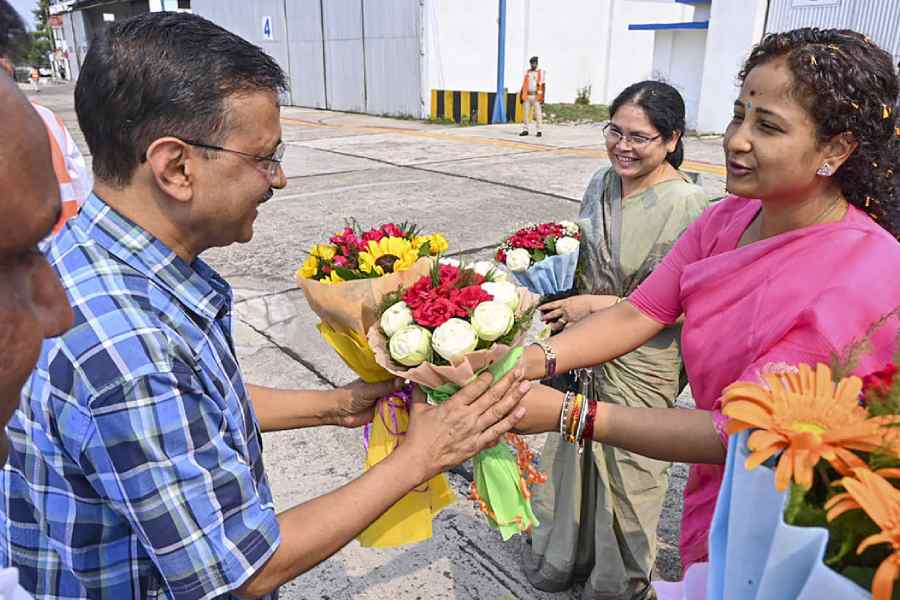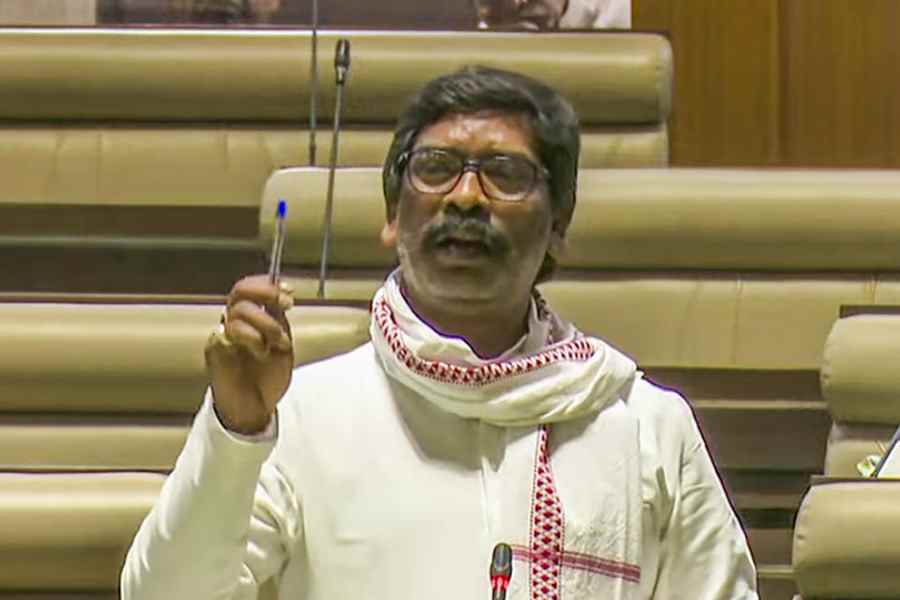The Supreme Court on Tuesday said it would examine whether former Jharkhand chief minister Hemant Soren could challenge his arrest, made under the Prevention of Money Laundering Act, since the special PMLA court had already taken cognisance of the ED complaint.
"Cognisance" refers to a court applying its mind to a complaint, either by the investigating agency or a private complainant, to examine whether summons or warrants should be issued against an accused.
"We need to be satisfied that after the cognisance-taking order, whether the challenge to arrest will survive," the bench of Justices Dipankar Datta and Satish Chandra Sharma told senior advocate Kapil Sibal, appearing for Soren. "Suppose we hold the arrest is illegal, then what happens to the two orders?" the bench asked, referring to the dismissal of Soren’s bail applications by the special court and Jharkhand High Court.
Sibal had earlier cited last week’s apex court order that released NewsClick founder-editor Prabir Purkayastha ruling his arrest under the anti-terror law UAPA was "invalid" since the grounds of arrest had not been conveyed to him or his lawyer.
"Purkayastha's case was factually different. There, grounds (of arrest) were not furnished," the bench told Sibal.
Sibal sought time to place arguments relating to the questions posed by the bench, which then posted the next hearing to Wednesday.
The ED has accused Soren of money laundering in connection with a plot of land he is alleged to occupy illegally.

Arvind Kejriwal being received by Kalpana Soren, Hemant Soren’s wife, at the Sonari airport in Jamshedpur on Tuesday. PTI picture
Additional solicitor-general Suryaprakash V. Raju, representing the ED, opposed Soren’s plea for release. He argued there was no similarity with the matter relating to Delhi chief minister Arvind Kejriwal, whom the apex court recently granted interim bail to allow him to campaign for the general election.
Raju underlined that Soren was arrested on January 31, before the poll panel’s Model Code of Conduct kicked in, whereas Kejriwal was arrested after it did.
He said the trial court had prima facie material to hold Soren guilty and had therefore taken cognisance, and stressed that Sibal had not challenged the cognisance order.
Justice Datta observed: "A judicial forum has come to prima facie finding and it is not challenged. Question is whether a writ court can still look into it…. Cognisance has been taken; therefore, court was prima facie satisfied."
Sibal countered: "Can there be a law that a man’s freedom and illegality of arrest cannot be gone into in a writ petition challenging arrest… just because he seeks bail in the meantime?"
Unlike trial courts, the Supreme Court and the high courts are considered "writ courts", empowered to pass any direction/ orders to enforce a citizen’s fundamental or statutory rights.
"You say arrest is illegal, so custody is illegal. You are challenging his custody. But the special court takes cognisance. So, the question we want to ask is even after cognisance, can the arrest be called invalid? This needs an intense debate," the bench said.










